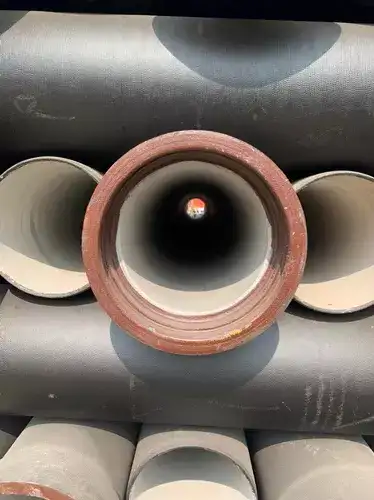Ductile iron pipe (DIP) has become a cornerstone in modern infrastructure, particularly for water and wastewater systems. Renowned for its strength, durability, and versatility, DIP offers a reliable solution for various applications. However, understanding its quality is crucial for engineers, planners, and decision-makers to ensure optimal performance and longevity.

1. Mechanical Properties of Ductile Iron Pipe
1.1 Tensile Strength
Ductile iron exhibits impressive tensile strength, typically ranging from 60,000 to 100,000 psi. This characteristic ensures the pipe can withstand internal pressures and external loads without failure.
1.2 Yield Strength
The yield strength, often around 42,000 psi, indicates the stress at which the material begins to deform plastically. This property is vital for maintaining structural integrity under varying operational conditions.
1.3 Elongation
Ductile iron’s elongation capacity, usually around 10%, allows for some deformation before fracture, providing a safety margin under stress.
1.4 Hardness
The hardness of ductile iron contributes to its wear resistance, making it suitable for applications where abrasion is a concern.
2. Corrosion Resistance
2.1 Internal Corrosion
Ductile iron pipes are susceptible to internal corrosion, particularly from water chemistry. Implementing cement-mortar linings can mitigate this risk by providing a protective barrier.
2.2 External Corrosion
External corrosion, influenced by soil conditions, can be addressed through protective coatings and encasements. Methods like V-Bio® enhanced polyethylene encasement have proven effective in aggressive environments.
3. Manufacturing Standards and Quality Control
3.1 AWWA C151 Standard
The American Water Works Association (AWWA) C151 standard outlines the minimum manufacturing requirements for ductile iron pipes, ensuring consistency and reliability.
3.2 ASTM A536 Grade 65-45-12
This specification defines the mechanical properties of ductile iron, with Grade 65-45-12 indicating a minimum tensile strength of 65,000 psi, yield strength of 45,000 psi, and elongation of 12%.
4. Performance Metrics
4.1 Longevity
Ductile iron pipes have an expected lifespan of 100 to 110 years, depending on environmental conditions and maintenance practices.
4.2 Impact Resistance
The material’s ability to absorb energy from impacts without fracturing adds to its suitability for areas with heavy traffic or seismic activity.
5. Environmental and Sustainability Considerations
5.1 Recyclability
Ductile iron is highly recyclable, with nearly 95% of the material sourced from post-consumer and light-industrial recycled materials, primarily shredded automobiles.
5.2 Energy Efficiency
The manufacturing process of ductile iron pipes has become more energy-efficient over time, reducing the overall environmental footprint.
6. Comparison with Other Materials
| Property | Ductile Iron Pipe | PVC Pipe | Steel Pipe |
|---|---|---|---|
| Tensile Strength | High | Moderate | Very High |
| Yield Strength | High | Low | Very High |
| Corrosion Resistance | Moderate | High | Low |
| Impact Resistance | High | Low | Moderate |
| Lifespan | 100+ years | 50-70 years | 50-100 years |
7. Frequently Asked Questions (FAQs)
7.1 What is the expected lifespan of ductile iron pipes?
Ductile iron pipes have an expected lifespan of 100 to 110 years, depending on environmental conditions and maintenance practices.
7.2 How does ductile iron compare to other materials in terms of strength?
Ductile iron offers a balance between strength and ductility, making it suitable for various applications. While steel may offer higher tensile strength, ductile iron provides adequate strength with better corrosion resistance.
7.3 What are the corrosion risks associated with ductile iron pipes?
Ductile iron pipes are susceptible to both internal and external corrosion. Internal corrosion can result from water chemistry, while external corrosion is influenced by soil conditions. Protective measures like cement-mortar linings and polyethylene encasements can mitigate these risks.
7.4 Are ductile iron pipes environmentally friendly?
Yes, ductile iron pipes are environmentally friendly due to their high recyclability and the energy-efficient manufacturing processes employed.
7.5 What standards govern the quality of ductile iron pipes?
The quality of ductile iron pipes is governed by standards such as AWWA C151 and ASTM A536, which define the mechanical properties and manufacturing requirements to ensure consistent quality.
Conclusion
Ductile iron pipes offer a combination of strength, durability, and environmental benefits, making them a preferred choice for water and wastewater infrastructure. Understanding their quality attributes, including mechanical properties, corrosion resistance, and adherence to manufacturing standards, is essential for making informed decisions in infrastructure projects.

